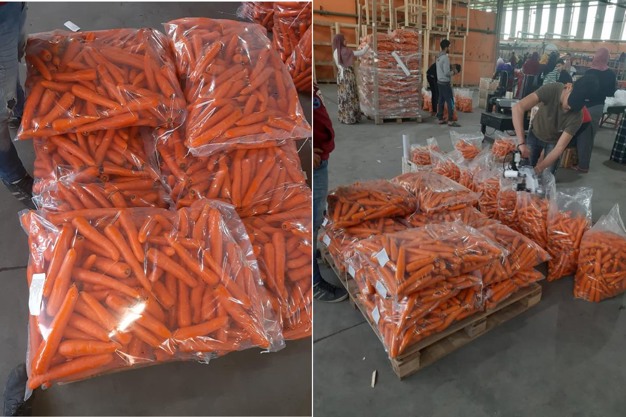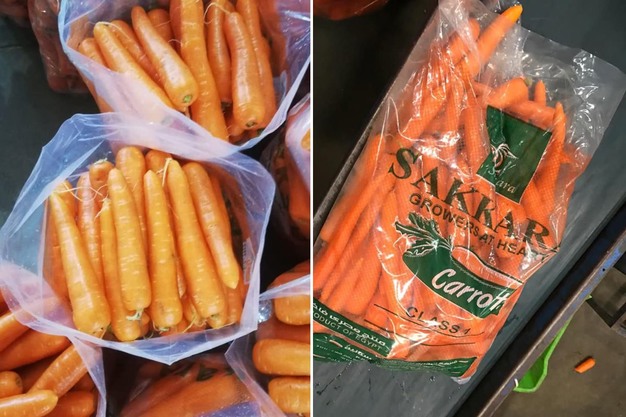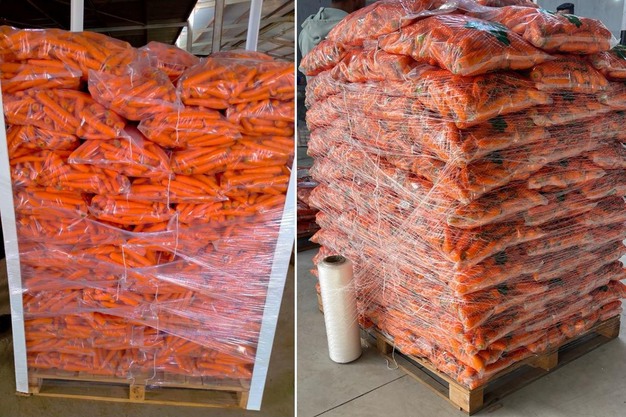The Egyptian carrot season has just begun, and this year the crop continues to gain in importance in terms of production and export volumes. So says Mohamed Ahmed, sales representative of the growing company Al Jabali.

Hassan says, "The season got off to a good start in mid-December. Production this year is excellent, as we have not recorded any diseases such as nematodes, which are the main concern in the carrot sector. Carrots are produced in Egypt in sandy desert soils, which contributes to the reduction of diseases, but also to high yields that reach up to 30 tons per feddan." [1 feddan = 0.42 ha].
Despite the production of almost 300,000 tons a few years ago, Egyptian carrots have only recently attracted the attention of importers, with the crisis in energy costs. Hassan says: "The global economic situation has had a major impact on the map of carrot production and trade. Many countries, where it had become too expensive to produce and maintain stocks of carrots, have discovered an Egyptian offer of very good quality, in the most sought-after varieties, and at a very good price. The area devoted to carrots in Egypt is increasing every year as a result, and vast tracts of land in the Egyptian desert have been reclaimed for this purpose."
"The most widely produced varieties are the so-called French or Dutch varieties, such as Fire Wedge, Maestro, Suprano, Presto, Nanco, and Jerada. Sizes range from 1.5 to 6 cm. Thanks to the use of sandy soils, we produce carrots that are solid, less susceptible to mold, and much easier to wash," adds the exporter.

The Egyptian carrot industry has responded to the surge in demand by investing heavily in logistics, as Hassan explains: "We pay a great deal of attention to the handling and storage of carrots, given their sensitivity. As soon as they are harvested, carrots must receive a thermal shock as quickly as possible, using hydro cooling lines, before being stored in cold rooms. At Al Jabalie, we are among the leaders of the industry in Egypt, with a production, hydrocooling, grading, and storage line that reaches 5 tons per hour, and more than 1000 feddans of acreage".
According to Mohamed, demand for Egyptian carrots comes in particular from Europe, where rising energy costs since the outbreak of the war in Ukraine have put European production at a disadvantage. The exporter continues: "More specifically, the UK is our largest European market, followed by Russia and, to a lesser extent, African and Gulf countries."

The emergence of Egypt in the carrot market is above all due to production costs that are much lower than the competition, adds Mohammed: "We compete with Australia, Turkey, Spain, and Israel, but our prices are unbeatable, with differences of up to 35% less than the competition. We also benefit from a long season that runs from December to June, and as late as August with the last frozen volumes."
For more information:
Mohamed Ahmed
Al Jabali (Sakkara Group)
Tel: +201062839734
Email: m.hassan@aljabalieg.com
